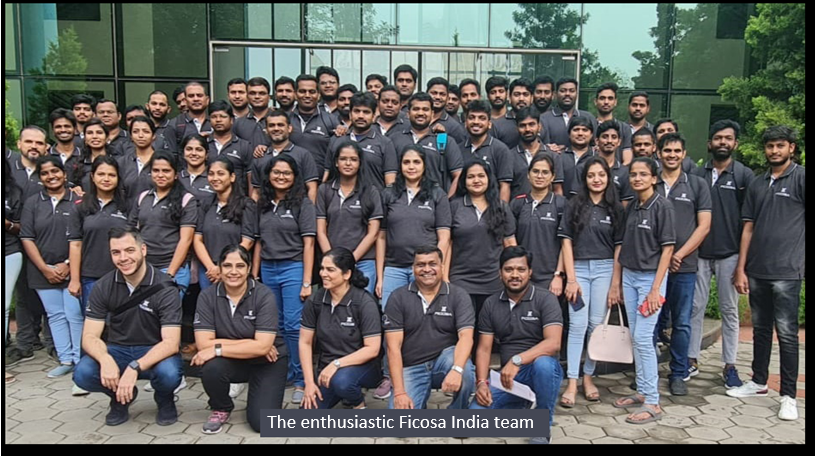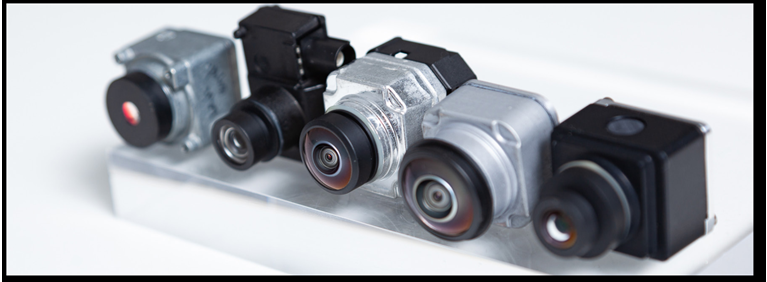
With the establishment of an engineering centre in India, Ficosa, which is devoted to the research, development and production of systems and parts for the automotive industry, has tapped into a great pool of talent and expertise to take its global growth strategy forward, as revealed by Ficosa India’s CEO Daniel Muñoz in this exclusive interview with N. Balasubramanian
What was the main aim of the establishment of Ficosa India Engineering Centre (FIEC)? How has the five-year journey been?
Ficosa is a global company devoted to the research, development and manufacturing of advanced technologies that are shaping the future of mobility. With a presence in 16 countries, the company has always been seeking the opportunity to cross borders and expand internationally to work with the best talent in the world. Because of this, the goal of the creation of FIEC was to build a global technological hub that was sustained by top-tier engineering talent and technological expertise available in India. From this starting point, we created a working environment based on trust and diversity where our top priority is to provide opportunities and boost local and international talent in India.
A great example of this philosophy is our work to empower women presence in the engineering sector, or our projects to onboard new engineers and expose them to international projects and the latest technologies. Since FIEC opened in 2018, we have experienced an amazing journey where we have grown, working hand by hand with Ficosa’s headquarters in Spain, to create state-of-the-art products that are already transforming the way the world approaches mobility. Initially, we started with a small group of people focused mostly on test and validation and then expanded the solutions portfolio covering the full development lifecycle.

This includes all the required engineering processes as per the ASPICE framework. From a local business perspective, we created value supplying parking camera solutions for the local market as well as being the customer interface for local OEMs in India. During these years, thanks to our hard work and dedication, we have consolidated our centre, building a team of more than 90 employees. In this sense, we expect to surpass the 100 employee mark during 2023. As such, it has been a global vision that has made all this possible.
What are the areas, technologies, key industry trends like safety, autonomous driving, efficiency, etc. in which FIEC works or focuses on? Have any of the products or technologies developed at the centre been deployed with any OE customer?
FIEC is the global technological hub of Ficosa and so our strategy is fully aligned with the company’s vision for the future of mobility that is based on vision and electromechanic systems. From India we work within the wide portfolio of the company in different business units such as e-mobility, advanced driver assistance systems (ADAS) or command and control. At FIEC we have developed multiple projects and delivered technological solutions that are at the forefront in terms of innovation. Among these projects, we can talk about all the initiatives in the field of new technologies for ADAS such as the camera monitoring system (CMS), surround view system (SVS) or the in-cabin monitoring, combining cameras and radars for some of the main OEMS of the world. The automotive sector is experiencing a revolution where vision, security and sustainability are transforming how we approach mobility. And in the Ficosa India Engineering Centre, as part of Ficosa, we are one of the global leaders that are already shaping this transformation.
India is currently undergoing an e-mobility revolution of sorts with electric vehicles (EVs) set to completely take over some vehicle segments or niche applications. Does FIEC do any work focused on EVs and e-mobility?
As said, FIEC is already playing a key role in the automotive revolution in terms of electric vehicles that is transforming the way we move towards safer and more sustainable mobility solutions. In this sense, our centre is closely working with Ficosa’s e-mobility business unit in the development of advanced solutions for EV vehicles in projects such as the development of an on-board charger (OBC) for a global top tier OEM. We also have relevant projects in the in-cabin monitoring (ICM) segment where we work with our ADAS business unit in disruptive solutions that use technologies such as vision systems or interior radars to improve the driver experience and increase the safety of the passengers.

As regards the vision systems, at FIEC we are also fully integrated with the ADAS business unit to consolidate our surround view systems (SVS) and parking cameras for a safer and more comfortable experience. We also provide solutions locally in India to our partner, namely, Tata-Ficosa, a joint venture between Tata Autocomp Systems and Ficosa that was established in 1997. During this year, we will reach the milestone of one million parking cameras delivered in India. Some other relevant projects are the development of ‘shift by wire system (SBW) for the Indian local market, working alongside Ficosa’s command and control BU or the different ongoing collaborations with European customers in the connected car and IoT domains, an area in which we have strong experience as part of the development teams for the telematic control units that are used in connected cars, both for the local and global markets.
Apart from catering to Ficosa’s business in India, what kind of work does FIEC do to support the company’s global presence across the globe? What are Ficosa’s views on the R&D and innovation capability and resource availability in India to support global projects?
As Ficosa’s global technological hub, we are a strategic part of the company’s global strategy, providing solutions in both local and international projects. To do so, we strongly believe in the Indian talent. In fact, ever since we took the decision to establish our global research and development hub in India in 2018, we have been reinforcing and supporting the development and growth of the centre by providing opportunities for the local talent to take part in international projects for top tier international customers. Today, more than ever, we are convinced and determined to continue reinforcing our international strategy that created a competitive advantage for the company thanks to the amazing talent and commitment of the local team. We firmly believe that the local ecosystem in India has all the essential ingredients for success: talent availability, expertise, commitment, speed and government initiatives to create the right environment and conditions for companies to succeed. Also, I think that the Indian culture and values facilitate an open mindset and a spirit of creativity and innovation, which is essential when working in disruptive projects with global reach.
We understand that FIEC has around 80 employees now. How do we see this growing moving forward and what are your future plans?
In 2022, FIEC grew 23%, and as of today we are a team of more than 90 employees with a business plan to keep growing another 20% more during 2023. Moving forward, one of our top priorities is to enhance our commitment to talent and equal opportunities. In this regard, it should be noted that at FIEC we have a workforce with 32% of women talent. Women inclusion in the engineering and technological sector is essential to us and we are actively working to further increase this percentage. Also, during 2022 we focused on service diversification while taking care of the existing local business. Nowadays, we are focusing on customer diversification, actively looking for partnerships with local customers that can benefit from our experience and talent as a Tier I company. The goal is to also provide end-to-end engineering services to companies outside the Ficosa Group. We carefully built our value proposal from India based on talent, expertise, competitiveness and organisational speed and I am convinced that this mix will help us propel our growth beyond 2024. The current mobility revolution is creating constant opportunities and the next few years will trigger amazing new technologies and developments. Because of this, FIEC is an excellent place where professionals can play a main role in this transformation. In this sense, we strongly believe in a collaborative future where corporate collaborations and governments support each other, and local entities generate the ecosystem for innovation and value creation while constructing more sustainable mobility solutions